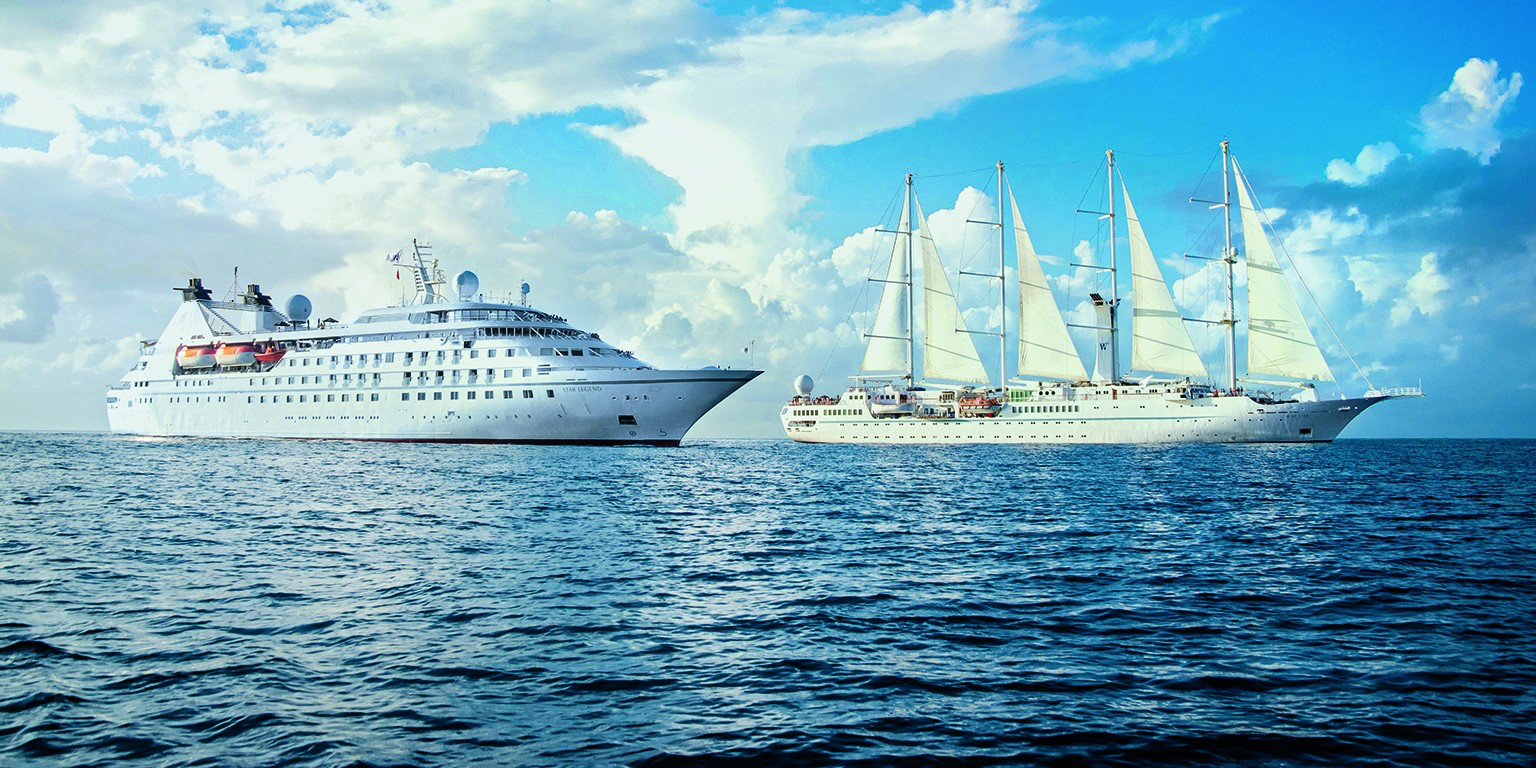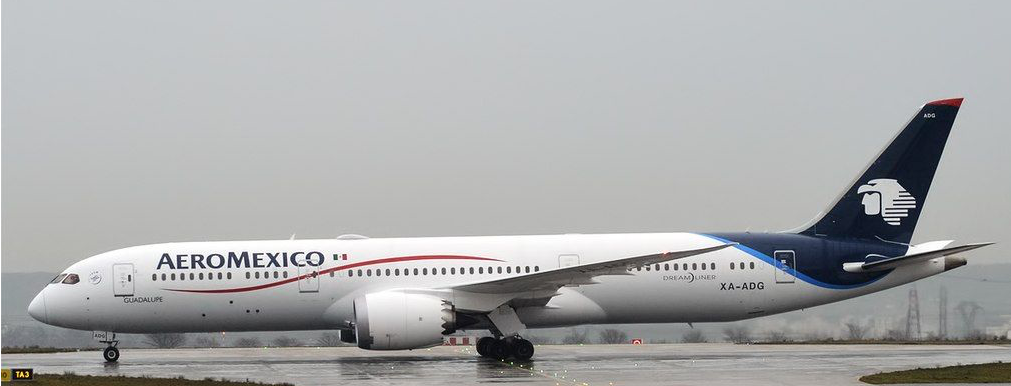Tag: Panama
Mexico City, March 10, 2021 – Cooperating with DHL Global Forwarding, Aeromexico managed to achieve its first flight in its history to Russia operating a cargo charter flight. The flight departed from Mexico City on March 8, with a stopover in Madrid, Spain. The flight continued on to Moscow Sheremetyevo International Airport in Russia, landing on March 9. Following cargo loading, the Boeing 787 Dreamliner aircraft took off for the return flight to Mexico City, once again stopping over in the Spanish capital.
Aeromexico, in the last 12 months, has landed its Dreamliner aircraft at 20 new airports in 14 countries including: Belo Horizonte, Cabo Frio, Cali, Fortaleza, Frankfurt, Guatemala, Guayaquil, Hong Kong, Kingston, Moscow, Panama, Porto Alegre, Quito, Santo Domingo, San Jose, San Pedro Sula, San Salvador, Shenzhen, Winnipeg, and Wuhan.
Since the start of the pandemic, Aeromexico has transported more than 6,400 tons of cargo on 325 charter operations to ship medical supplies and other necessary goods to Mexico, as well as 16 countries. Aeromexico Cargo operates in more than 40 airports in Mexico, and several other destinations including the USA, Canada, Central America, South America, Asia, and Europe. The most common cargo carried includes medical supplies, pharmaceuticals, perishable goods, live animals, and high technology consumer and corporate items.
Kansas City Southern (KCS) (NYSE: KSU) will release its fourth quarter 2020 financial results on Friday, January 22, 2021, before the opening of trading on the New York Stock Exchange.
KCS will also hold its fourth quarter 2020 earnings conference call on Friday, January 22, 2021 at 8:45 a.m. eastern time. Shareholders and other interested parties are invited to participate via live webcast or telephone. To participate in the live webcast and to view accompanying presentation materials, please log into investors.kcsouthern.com immediately prior to the presentation. To join the teleconference, please call (844) 308-6428 from the U.S., or (412) 317-5409 from all other countries.
A replay of the presentation will be available by calling (877) 344-7529 from the U.S., (855) 669-9658 from Canadaor (412) 317-0088 from all other countries and entering conference ID 10150484. The webcast replay and presentation materials will be archived on the company’s website.
Headquartered in Kansas City, Mo., Kansas City Southern is a transportation holding company that has railroad investments in the U.S., Mexico and Panama. Its primary U.S. holding is The Kansas City Southern Railway Company, serving the central and south central U.S. Its international holdings include Kansas City Southern de Mexico, S.A. de C.V., serving northeastern and central Mexico and the port cities of Lázaro Cárdenas, Tampico and Veracruz, and a 50 percent interest in Panama Canal Railway Company, providing ocean-to-ocean freight and passenger service along the Panama Canal. KCS’ North American rail holdings and strategic alliances with other North American rail partners are primary components of a unique railway system, linking the commercial and industrial centers of the U.S., Mexico and Canada. More information about KCS can be found at www.kcsouthern.com.
BRASILIA, Oct 28 (Reuters) – A proposed joint venture between United Airlines, Colombia’s Avianca Holdings and Panama’s Copa Holdings has been delayed due to the potential inclusion of a fourth partner, as well as problems at Avianca, the CEOs of two of the companies said.
United Airlines said last week it wants to include Brazil’s Azul SA, in which it already has a stake, in the planned tie-up with Copa and Avianca, the latest play by a U.S. carrier for a region expected to have significant air-travel growth in coming decades.
The three airlines had said in November 2018 they would file for U.S. antitrust approval “in the near term” in order to coordinate routes between South America and the United States, a bold move to expand their market share in the region. At the time, the carriers said they aimed to implement the agreements in 2020.
But almost a year after United, Copa and Avianca announced the preliminary joint venture plan, they have yet to file any paperwork with the U.S. Department of Transportation, seeking antitrust immunity. Now, the regulatory process may begin as late as next year, they said.
Copa Chief Executive Officer Pedro Heilbron said the group expects to file in early 2020, while Avianca CEO Anko van der Werff, said it would file between late 2019 and early 2020. Both spoke to Reuters in separate interviews on Monday on the sidelines of the ALTA Airline Leaders’ Forum in Brasilia.
Both said there was a delay on the original timeline.
United did not comment on a delay but said it planned to complete the application later this year or early next year. Azul had no comment other than saying it was “always looking for opportunities with its partners.”
The potential inclusion of Azul, which may be in the early stages of negotiations, has been one reason for the timetable slipping.
“Quite frankly, really completely open and honest, we haven’t had many discussions,” van der Werff said. “I personally haven’t had even one real, serious discussion at the CEO level about when to include and what to include.”
Both executives said they want Azul to be part of the joint venture – Brazil is by far the largest aviation market in the region – but its inclusion makes negotiations more difficult.
“It almost doubles the level of complexity,” Heilbron said.
Avianca has also gone through corporate turmoil. In May, United Airlines ousted the chairman and controlling shareholder at Avianca, revamping leadership.
“We should have filed with regulators this year but everything got delayed because of what has happened at Avianca,” Heilbron added.
(Reporting by Marcelo Rochabrun in Brasilia Additional reporting by Tracy Rucinski in Chicago Editing by Matthew Lewis and Sandra Maler)
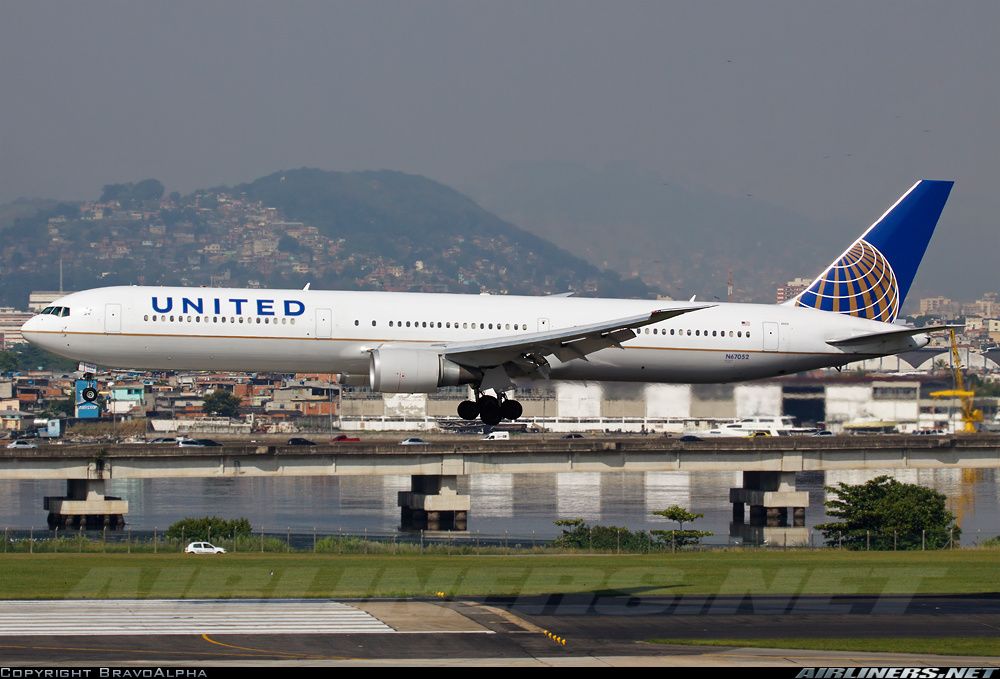
Carrier to fly super-efficient, long-range 787-9 on new non-stop international routes
SEATTLE, June 26, 2019 – Boeing [NYSE:BA] today delivered the first 787-9 Dreamliner for Turkish Airlines, which plans to use the airplane’s fuel efficiency, range, reliability and size to operate new non-stop international routes such as Bali, Bogota-Panama, Washington and Atlanta.
“Turkish Airlines has been committed to continuously expanding its range of services on and off-ground as it grows in reach and flies to more international destinations than any other carrier in the world. With this goal in mind, we’re thrilled to reach new horizons with the addition of the 787-9 Dreamliner to our fleet flying from our new home, Istanbul Airport,” said M. İlker Aycı, Turkish Airlines’ Chairman of the Board and the Executive Committee. “The aircraft’s advanced technology, fuel efficiency, and passenger-centric cabin design will all help us remain the first choice for travellers and provide our loyal flyers across the globe with a best-in-class experience for years to come.”
More than 80 customers around the world have ordered more than 1,400 Dreamliners since the program’s introduction, making it the fastest-selling widebody jet in history. The 787 Dreamliner allows airlines to reduce fuel use and emissions by 20 to 25 percent and serve far-away destinations. The combination of fuel efficiency and long range has helped airlines flying the 787 family of airplanes save more than 36 billion pounds (16 billion kilograms) of fuel and open more than 235 non-stop routes.
As part of the 787 Dreamliner family, the 787-9 is powered by a suite of new technologies and a revolutionary design. It can fly 7,635 nautical miles (14,140 km) in addition to carrying more cargo and allowing airlines to profitably grow routes. The airplane allows operators to achieve better fuel efficiency per seat compared to the previous airplanes in its class.
Turkish Airlines’ Dreamliner has seating capacity for 300 passengers, including 270 economy class seats and 30 business class seats. The carrier’s 787 includes long haul economy class seats and business class monuments produced in Turkey by Turkish suppliers.
“Turkish Airlines’ growth has been remarkable in recent years, both in expanding flight options and supporting Turkey’s aviation industry. We are honored that Turkish Airlines is embarking on its next chapter of expansion with the 787 Dreamliner,” said Ihssane Mounir, senior vice president of Commercial Sales and Marketing for The Boeing Company. “We are confident that the Dreamliner’s unmatched fuel efficiency, performance and passenger-pleasing comforts will contribute to the airline’s reputation as a five-star airline.”
About Boeing
Boeing is the world’s largest aerospace company and leading provider of commercial airplanes, defense, space and security systems, and global services. The company supports commercial and government customers in more than 150 countries. Boeing employs more than 150,000 people worldwide and leverages the talents of a global supplier base. Building on a legacy of aerospace leadership, Boeing continues to lead in technology and innovation, deliver for its customers and invest in its people and future growth. www.boeing.com
About Turkish Airlines
Based in Istanbul, Turkish Airlines carried 75,2 million passengers last year. The national flag carrier of Turkey currently operates direct flights to 311 destinations in 124 countries, as the only airline that flies to more countries and international destinations in the world. Turkish Cargo, the successful sub-brand of Turkish Airlines, is the world’s fastest-growing air cargo carrier considering the cargo volumes, new flight destinations, and expanding cargo fleet. It serves customers in more than 300 destinations including 88 dedicated direct cargo flights in over 120 countries.

Ottawa, Ontario, May 29th, 2019: Today during the CANSEC Defence & Security show, Viking Air Limited of Victoria, British Columbia has announced its plans to hold a world demonstration tour for its Guardian 400 aircraft, the special missions variant of the Viking Series 400 Twin Otter. The world tour will include detailed briefings and demonstration flights in Europe, Africa, Middle East, India, South East Asia, Oceania, and North America.
For the past six months, a production Series 400 Twin Otter has been undergoing modifications to transform into Viking’s Guardian 400 demonstrator aircraft for the proposed world tour. It will feature a right-hand SCAR pod with Hensoldt Argos EO/IR imaging turret, multi-spectral HDTV camera, mega-pixel HD Thermal imager, laser range finder, multi-mode auto tracker, and Remote Image Bus (RIB) video feed for display on the cockpit MFD or crew workstation. The demonstrator will also feature a left-hand SCAR pod with Leonardo Osprey Radar System and Sentient Vidar Camera system.
In addition to its mission sensor package, the Guardian 400 prototype will be equipped with an Airborne Technologies’ tactical workstation with high-definition touchscreen monitors, data/voice/video recorder, Mission Management Unit (MMU), mission radio communications, intuitive hand controller for MCU & SLR camera targeting, CarteNav AIMS mission system software, Kestrel MTI targeting software, and IKHANA ergonomic mission seat for optimized crew comfort. The prototype will also be equipped with Viking conformal bubble windows, left and right wing-mounted hard points by IKHANA, Thunder Bay Aviation stretcher racks, and an aft lavatory for crew comfort.
With a target launch date of September 2019, the Guardian 400 world tour has briefing and demonstration flights proposed throughout Europe, North Africa, Central Africa, Southeastern Africa, the Middle East, Southern Asia, Asia Pacific, North America and will culminate in Ottawa, Canada to coincide with the 2020 CANSEC Defence & Security show.
“As we’ve anticipated development of a Guardian 400 technical demonstrator for many years, to now be able to show off its unique performance capabilities and incredible versatility to interested military and government organizations in their home countries is exciting to say the least,” said Robert Mauracher, Viking executive vice president, Sales & Marketing. “While the tour details are still under development, we encourage interested parties to contact us if they wish to participate in a flight demonstration.”
About the Guardian 400 Twin Otter:
Viking developed the Guardian 400 in response to foreign military and government agency demand for a medium-range maritime patrol, SAR and critical infrastructure platform based on the new Twin Otter Series 400 aircraft. Designed as an economical force multiplier for 21st century surveillance and security requirements, the Guardian 400’s low acquisition and operating costs combined with its modern, flexible architecture allows it to be customized to suit operators’ financial and mission requirements.
The Guardian 400’s robust design, minimal maintenance requirements, and exceptional short-field performance capabilities make it ideally suited for specialized government operations in extreme environments. Certified under the restricted category, the Guardian 400’s increased take-off weight and extended range internal Patrol Tank allow for operational sorties over 10 hours in duration.
Trusted by the governments of Peru, Panama, the United States, United Arab Emirates, and Vietnam, over thirty Twin Otter Guardian 400 aircraft have now entered service in various roles, including maritime surveillance, search & rescue, parachute operations, pipeline monitoring, drug enforcement, medevac, and critical infrastructure support.
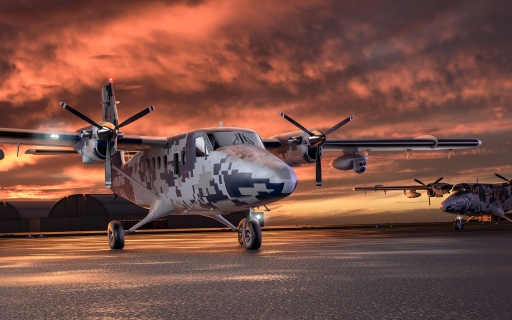
BOGOTA (Reuters) – Airline Avianca Holdings SA (AVT_p.CN) will begin negotiations with Airbus (AIR.PA) to reduce the 100 planes it had agreed to purchase in a 2015 deal to as few as 50, the chief executive of the Latin American company said.
Avianca was also seeking a strategic alliance with German airline Lufthansa (LHAG.DE), CEO Hernan Rincon said late on Sunday, part of its bid to expand in Europe.
Avianca representatives will travel to France in the coming days for re-negotiations with Airbus, Rincon said. Avianca had agreed to buy 100 A320neo planes to modernize its fleet.
“Of those 100, we’ll probably receive between 50 and 80 planes,” he said. “We don’t have any doubt that we will keep growing, what has changed is the rhythm of the growth.”
Technological advancement is part of the reason for the airline wanting to reduce its purchases, Rincon added.
“The rhythm of technology is changing, it will take a while to get all of the order and we don’t want to have a commitment to planes with today’s technology which will be received by us in 10 or 15 years,” he said.
A reduction in the original order, which was set to cost $10 billion, will also give Avianca some financial breathing room, Rincon added.
At the end of last month Avianca, United Continental Holdings Inc (UAL.O) and Copa Airlines of Panama said they had finalized a three-way joint venture that will allow them to plan routes and fares together and share revenues on those routes.
United, Avianca and Copa are already codeshare partners and Star Alliance members.
“We’ve started conversations with Lufthansa, but its very embryonic,” said Rincon. “We hope to reach an agreement to benefit our passengers in Europe, which is a relevant and growing market.”
The deal with Lufthansa would be similar to the one just agreed with United and Copa, Rincon added.
Under the United and Copa agreement, United said it would provide a $456 million term loan to cash-strapped Avianca’s top shareholder, Synergy Group Corp. Loss-making Avianca has a roughly $4 billion debt pile, of which 40 percent is due within the next two years, according to recent financial statements.
That deal still has to be approved by regulators.
Avianca will also start operating a regional subsidiary in Colombia in 2019, meant to serve medium and small-sized cities with 12 ATR 42 planes. The planes are already part of Avianca’s fleet, Rincon said.
(Reporting by Luis Jaime Acosta; Writing by Julia Symmes Cobb; Editing by Helen Murphy and Marguerita Choy)

SAO PAULO, Dec 3 (Reuters) – Two Brazilian airlines, Azul SA and Avianca Brasil, are targets for expansion in the wide-ranging alliance between United Continental Holdings Inc , Colombia’s Avianca Holdings and Panama’s Copa Airlines on U.S.-Latin America routes, Avianca Holdings’ Chief Financial Officer, Gerardo Grajales, told Reuters on Monday.
There was little reference to Brazil, by far the region’s largest market, when the alliance was announced on Friday, but Grajales said the parties to the agreement already had in mind Azul and Avianca Brasil, which operates independently of Colombia-based Avianca Holdings.
“The two airlines complement each other in the Brazilian market,” Grajales said. “From the beginning we thought that Brazil should be covered by our agreement, however, no partnership would be authorized if it did not have an Open Skies agreement.”
The Open Skies agreement between Brazil and the United States was signed into law in May, when discussions among the three airlines were already advanced, he explained.
The airline agreement mimics a partnership between American Airlines and Chile’s Latam Airlines which has been mired in regulatory scrutiny.
The announcement between the United Airlines parent, Avianca and Copa capped off almost two years of negotiations. United will loan Avianca’s majority shareholder almost $500 million to be spent on ventures outside of the airline.
Depending on how it is repaid, United could end up owning a large chunk of the Colombian carrier. United is making no monetary investment in Copa or its affiliates.
United already owns an 8 percent stake in Azul, and has a codesharing agreement with Avianca Brasil, formerly known as Ocean Air.
Shares in Azul were down almost 5 percent on Monday afternoon in Sao Paulo. The world’s largest asset manager BlackRock disclosed late on Friday that it had sold an almost 10 percent stake in Azul’s preferred shares. Hours earlier, the carrier disclosed in another securities filing that it sought to double in size in the next five years.
Azul did not immediately respond to a request for comment. (Reporting by Marcelo Rochabrun; Editing by David Gregorio)
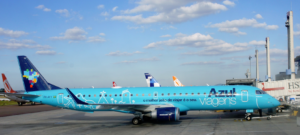
Image from en.wikipedia.org
Customers can conveniently connect to Azul’s unrivaled domestic network when flying
Copa into and out of Brazil; in addition to the codeshare agreement, Azul and Copa also
announce today the launch of their frequent flyer cooperation agreement.
São Paulo, November 8, 2018 – Azul Brazilian Airlines and Copa Airlines have announced today a broad cooperation agreement that will connect the two largest route networks in Latin and South America. As part of this agreement, customers can conveniently connect to Azul’s unrivaled domestic network when flying Copa into and out of Brazil. This agreement means that Copa customers can now potentially access all of Azul’s 101
domestic destinations in Brazil, including 52 destinations not served by any other airline. In the near future, Azul will also place its code on Copa flights into and out of its Panama city hub, allowing Azul’s domestic customers to take advantage of the broadest network in Latin America. The benefits and convenience of a codeshare ticket include those of thru check-in and thru-baggage.
In addition to the codeshare agreement, Azul and Copa also announce today the launch of their frequent flyer cooperation agreement. Starting in December, members’ of TudoAzul, Azul’s loyalty program, and ConnectMiles, Copa’s loyalty program can now easily earn frequent flyer points when flying either airline.
“Copa Airlines is always looking for partnerships to offer the best travel experience and enhance our route network for our customers. This new partnership with Azul reinforces the company’s presence in Brazil as well as expands our connectivity domestically in this important country”, said Dennis Cary, Commercial and Planning Senior Vice President, Copa Airlines.
“This codeshare agreement also allows us to offer more flight options to major cities in the Brazilian southeastern and northeastern regions to which we currently do not fly and which, through our Hub of the Americas, will be connected with Panama and the rest of the American continent bringing more opportunities and economic development to these cities”, added Cary.
Operational excellence is embedded deep within the DNA of both Copa and Azul. “In addition to the broad portfolio of destinations, this codeshare brings together two of the most on-time airline in the world. Copa is the most on-time airline in Latin America while Azul is the most punctual in Brazil. This ensures the best possible experience for our connecting customers”, highlights Shah.
Once the agreement is approved by the regulatory authorities, Customers of both airlines will be able to enjoy all these benefits.
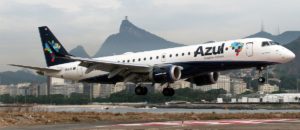
Story from voeazul.com
